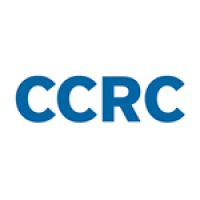By Carmen Cortez Morales and Selena Cho
As more students enter college with diverse academic backgrounds, corequisite English and math courses have become a promising strategy to support their success. Designed to provide timely academic support alongside credit-bearing coursework, these models help students avoid the delays and costs of traditional developmental sequences.
But the success of corequisite remediation depends on more than just offering the courses. For students to thrive, they must be placed appropriately, clearly advised, and offered courses that are structured to support their needs.
A recent CCRC research brief, Student Experiences in Corequisite Courses at CUNY, offers insights into how students are experiencing corequisite courses in the City University of New York (CUNY) system. It highlights that while colleges across CUNY developed promising approaches to better support students in corequisite courses, students still sometimes found the pace of corequisite courses to be challenging and often felt confused or disappointed by advising.
In an ongoing CCRC study of corequisite courses in Louisiana, what we’re hearing from students echoes many of these findings, indicating that CUNY students’ experiences may be common among corequisite students. With students from very different systems and contexts expressing similar perspectives and offering similar suggestions, all institutions implementing corequisite courses can benefit from the ideas in the brief on how institutions can better support corequisite students.
The Role of Advising and Placement
Advising at community colleges is often under-resourced and understaffed, and advisors juggle caseloads that are too large to allow for deep and personal conversations with every student. Because of this, many CUNY students reported having impersonal, confusing, or inconsistent advising experiences, particularly when it came to course placement. Students often did not understand why they were enrolled in a longer English or math course, or why they had multiple sections of the same subject on their schedule to accommodate the additional contact time that is a feature of corequisite courses. In some cases, students did not get to interact with an advisor at all before being enrolled in a course. This often led faculty to step in to explain course structures and placement on the first day of class, increasing the advising burden on faculty.
Louisiana students had similar experiences, with many reporting confusion about why they were placed into certain courses. One student, for example, shared that they were placed into college algebra despite having anxiety about math and later learned that statistics or contemporary math would have been a better fit for their major anyway. Others said they were placed into courses with no conversation at all. “I didn’t speak with anybody,” one student said. “They just scheduled me to take these classes.”
Though high caseloads and insufficient support for community college advisors is common at community colleges, students in both CUNY and Louisiana colleges expressed a strong desire for advising that helps them understand why they are placed in a course and how it supports their academic path. When students are part of the decision-making process and receive clear explanations, they may feel more confident and engaged.
Supporting Students Through a Fast-Paced Course
In both the CUNY and Louisiana studies, students described the fast pace of their corequisite courses as a challenge that made it difficult to keep up with the material, particularly in corequisite math courses. This accelerated pace reflects the structure of corequisite courses, which are designed to help students master college-level material while simultaneously providing additional support to reinforce essential foundational skills.
“It’s too quick, too fast,” said one student at CUNY. “Why are we learning three things in one day? There’s no time for review … I can’t retain knowledge.”
In Louisiana, 8-week corequisite courses are offered alongside traditional 16-week courses, providing students with flexible scheduling options. However, many students noted that the 8-week course format further accelerated the pace of the course and exacerbated challenges with learning and retaining the material. Students explained that they don’t always realize what they are struggling to understand until they have the opportunity to review and process the material, which is extra challenging in the 8-week format. As one student said, “After a lecture, instead of moving on to the next lesson, they should give us time in class to see what we understand of it.”
Making shortened courses more effective may require additional supports for both students and faculty, such as helping students understand the increased time commitment outside of class, preparing faculty to effectively structure extended class periods to scaffold learning, and encouraging students to take fewer courses during shortened terms. With the 8-week format presenting real challenges, its success may depend on how well both students and instructors are prepared for its demands.
To better support students in the shortened course format, institutions can leverage adaptive technology that offers targeted instruction and practice. Instructors in Louisiana have been using technology to record lectures, post annotated notes, and create short review videos to give students flexible opportunities to revisit complex material. Additionally, advisors should be thoroughly briefed on the implications of the course format options so they can help learners understand the tradeoffs involved with shortened courses. For example, faculty can share course syllabi or sample assignments for 8-week and 16-week courses, giving advisors concrete tools to explain how the shortened format differs. This kind of collaboration can help students assess whether they’re prepared for the faster pace and increased out-of-class workload of a shortened course.
Finally, across all corequisite course formats, institutions should prioritize proactive, student-centered supports both inside and outside of class that complement instruction and deepen learning. For example, embedded tutoring—the practice of having peer tutors attend class sessions and offer individualized support—is emerging as a promising approach across systems. Additionally, accessible tutoring options through online platforms, third-party providers, and in-person sessions with extended hours help accommodate students’ diverse obligations and busy schedules.
What’s Working: Shared Themes in Student Success
Despite the challenges highlighted by students across CUNY and Louisiana, corequisite courses still offer significant benefits. These models enable students to earn college-level credits more quickly, without the need to spend additional time in noncredit developmental courses. Research from various U.S. states indicates that, for many students, corequisite courses outperform traditional developmental models in supporting successful outcomes such as gateway‑course completion and credit accumulation, though the effects vary depending on subject area, student preparation level, implementation quality, and outcome measures.
However, as students’ experiences show, these benefits can be affected by advising, course pacing, instructional support, and other issues. There is a pressing need for increased funding for advising offices at community colleges, as well as more financial support for tutoring services, especially embedded tutoring. Faculty also need release time and resources for professional development to strengthen how they support students in the classroom.
By addressing these resource gaps, colleges can help ensure that corequisite courses continue to evolve to better meet students’ needs. As we continue to gather insights from students and educators, it is our hope that their voices will guide improvements to corequisite models to better serve students.





